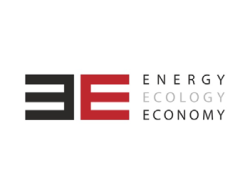SUMMARY
Of the results, conclusions and proposals made during the Sixth Regional Energy Conference "Energy Development in Southeast Europe: Energy security, sustainability, investment and growth", held 19-20 September 2016 in Sofia
The Conference was attended by over 150 representatives from the National Assembly, the European Parliament, the Ministry of Energy and other Bulgarian governmental institutions, ambassadors and counselors from diplomatic missions in Bulgaria and in other countries in the region, CEOs and experts from energy companies, representatives of the Energy and Water Regulatory Commission, the Bulgarian Academy of Sciences, consulting companies from the energy and extractive industry, NGOs and a number of other experts.
The discussions on the presentations and the panel debates allowed the participants to agree with consensus on many findings that would be introduced for further discussion with the energy community and the political leadership of the Bulgarian energy sector:
FINDINGS:
Energy policies and energy development:
- Regardless of some shared criticism on the pace of reforms in the Bulgarian energy, the Conference participants estimate the sector development in the last 2-3 years as positive. The key criticism relates to the tardy national energy strategy. The role of the country in setting up the regional high-level group on gas connectivity (CESEC) and expanding its scope to cover electricity, energy efficiency and renewable energy is highly appreciated.
- As undoubtedly positive is rated the activity of the new Energy and Water Regulatory Commission (EWRC) as well as the projected expert amendments in the regulatory framework in the country that envisage to further the market development of the sector. This evaluation is supported by the international organizations where Bulgaria is a member. The private business representatives propose the drafting any future regulations and elaborating the liberalization model to take into account the opinions of the business and the NGOs.
- The government policy to financially stabilize the energy sector is evaluated as successful thus allowing for the market reforms and development to continue.
- The elaboration of a new energy strategy bearing in mind the energy balance of the country is deemed of primary importance for the market reforms in the sector, it would introduce systematicity in taking the right decisions on the future development of the sector based on common European principles.
- Of crucial significance for the development of the sector is to avoid the mistakes made in past when the economic logic and feasibility was overturned by ill-grounded and unsubstantiated investment projects resulting in the current grievous state of affairs of the sector. The decisions on undertaking any investment initiative should be based on: well-grounded demand forecasts, economics, markets, supply and demand, and project feasibility. This applies to all branches – electricity, natural gas, energy efficiency.
- The basic principles in elaborating a new energy strategy should consider the opportunities for beneficial investment in energy saving ("Efficiency first" EU principle), the regional infrastructure connectivity, the regional energy markets, the mid-term and long-term energy demand forecasts and the energy mix that has to comply with the commitments the country took in reducing emissions.
- As regards energy efficiency, it is necessary to go to a new level of development – introduction of audit and monitoring systems in project implementation to warrant their effectiveness; the "free of charge" model should be discarded as it creates stumpers such as free-riding and rent seeking. Energy efficiency has to become a part of the energy policy of the country.
- The foreign experts recommend relying on domestic energy generation in parallel with the energy systems and market integration in order to achieve most enhanced energy security.
- A number of foreign investors recommend equal treatment of investors by the legislative, executive and judicial authorities.
- The ideas of using the equipment manufactured for Belene NPP in a new nuclear project in Bulgaria are not justifiable in the short run from viewpoint of demand and market for the generated electricity, economic necessity and effectiveness of such a project, financing options and feasibility. However, the arguments of the project supporters – compensating for closing down of over 3 000 MW capacity in 12-15 years' time and use of the equipment already paid for, deserve serious analysis. All these questions should finds answers in the new energy strategy that has also to assess the projected markets and generation in the CESEC region.
NATURAL GAS POLICY:
- The presented Bulgartransgaz investment programme for grid development attracted interest but did not answer to some critical questions – what gas consumption forecast was used for the investment programme, what are the target business indicators and what are the sources of financing. The impression is that Bulgartransgaz still applies "investment-centered" development policy.
- A report was presented at the Conference on the considerable gas hydrate reserves in the Black Sea, as a part of the EU funded international project. The reserves appear to be the highest among EU member states. It is quite possible that these reserves that may produce highly effective methane are of greater economic significance as compared to the expected conventional reserves. The issue attracted the interest of the energy community and the natural gas specialists and needs special attention by the government. It would be necessary to shortly elaborate national programmes for continued exploration efforts and training of specialists for the explorations and environmental production of the resource.
- The idea of Balkan gas hub is good in itself, however, major part of the conditions to make this project viable are not in place, plus 10-15 years of preparatory work are required. Detailed analysis of these conditions was made in two of the presentations in the gas panel. Key requirement for the creation of a regional gas hub is the liberalization of the domestic natural gas market and the confidence of the countries in the region. It would be advisable to complement the hub concept and the pre-feasibility study with elements that allow the transformation of the Balkan gas hub into a crucial factor for the development of the energy and gas market in SEE.
- The participants did not understand why the big regional gas project BRUA (Bulgaria-Romania-Hungary-Austria) presented by the Romanian speaker does not attract attention is not taken into account for the future Balkan gas hub.
- Two analytical highly professional presentations were devoted to the Balkan gas hub discussing serious issues and risks that have not been identified to exist. These reports and the related problems need to be discussed and taken into account by the competent specialists and the management of the energy sector before any investment is committed.
- The information on the substantial natural gas discoveries in Cyprus may dramatically change the rationale for LNG import to Greece and Bulgaria and this fact again needs to be taken into account for Balkan gas hub resource balance.
MODERN ENERGY TECHNOLOGIES
- The participants agreed that no progress is evident in applying modern energy technologies and policies in the Bulgarian energy sector. Two examples were discussed after the presentations:
a/ The distributed energy which is more advantageous compared to the centralized systems and shows substantial increase as a share of the total energy production in the world; it is not present in any development plans in Bulgaria and in the national incentive policy. Investment in this field is not encouraged.
b/ While energy from biomass as a part of the renewable technologies demonstrates rapid increase worldwide, in Bulgaria it is even far from the average European levels. The participants propose the future energy strategy to stipulate for policies and incentives for broader use of biomass for power generation and more specifically for highly effective use of biomass for heating. (Currently 34% of the heating in the country utilizes biomass, but the effectiveness is very low).
- It became clear during the discussions that some big international companies explore the opportunities to invest in large energy saving installations that would dramatically impact the operation of the balancing market. Unfortunately, the government does not encourage and plan to analyse the effect of building and commissioning of such installations.
- We recommend setting up an incentive platform to accumulate and support innovative technologies and solutions in the energy sector.
SPECIFIC PROPOSALS:
- Bulgaria still possesses the unique chance and advantages to assume leading position in establishing and operation of the future regional energy union. CESEC allows for such opportunities. Therefore it is necessary to draft and agree upon an active national energy strategy that has to be consistently implement by both the government and the parliament, with the active participation with the Bulgarian diplomacy. The strategy should in full compliance with EU strategy for the European energy union and COP21 targets.
- The drafting of the new energy strategy needs to be assigned to a team of external experts to include also NGO representatives and be subject to extensive public discussion. The terms of reference for the document would cover the following:
- Goals of the energy strategy should be: optimal (the lowest attainable) price of energy supplies, economic growth and jobs, all analysed in different scenarios;
- The document has to answer the question as to the degree of domestic energy generation/production and the level of regional energy exchange the market should rely on, and relevant energy security consideration each option suggests;
- The strategy should be based on ensuring sustainability, security, compliance with the new environmental requirements and optimal price of energy products, all of these supported by adequate technical and economic analyses and social impact analysis;
- Any new investment project in the energy strategy should be preceded by sound analysis of its marketability (does the market need it) based on demand study, end-user price and feasibility of the project (resources/sources available, financing secured, economic viability, etc.);
- In case of projects to replace existing generation with new technologies or to switch to another fuel, the above mentioned evaluation, analyses and studies should apply, too;
- The energy strategy has to follow the EU policy for regionalization of the energy markets and the establishment of a common European energy markets;
- The energy efficiency is to be an integral part of the energy strategy. The investment in energy efficiency should be regarded as investment in energy infrastructure;
- Energy efficiency should become an inseparable part of the country's energy policy.
- It is expedient to discuss the idea of drafting a regional energy strategy in the context of p. 1 above. This is mandatory for the natural gas.
- The plans for domestic market liberalization and its connection with the regional one should be carefully studied and analysed in view of preserving the competitiveness of a number of local producers. The process should follow step-by-step approach with impacts taken into account and analysed.
- The new market liberalization model that is expected to be proposed by the end of the year must be accompanied by an analysis of socio-economic effects and presented for public debate with the participation of the trade unions, energy, trade and consulting companies and other stakeholders.
Programme Committee








































